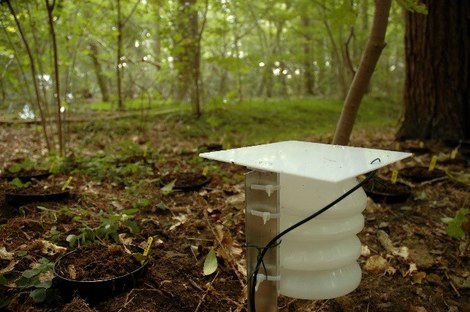Pieter De Frenne - FORMICA
Pieter De Frenne was born in Jette, in 1984. He graduated as a bioscience engineer in land and forest management at Ghent University in 2007 and obtained a PhD from the same university in 2011, at the Department of Forest & Water Management. In 2011-2012, he was postdoctoral researcher at the University of Cambridge.
Now, he is tenure-track professor associated with the Forest & Nature Lab, Faculty of Bioscience Engineering, Ghent University. His research field is the dynamics of plants in a changing environment. He utilizes observational and experimental approaches as well as large databases and modelling to address questions in connection to plant dynamics and global change themes (climate change, land-use changes and nitrogen pollution).
Contact: Pieter.DeFrenne@UGent.be
Publications: https://biblio.ugent.be/person/801002197614
Microclimatic buffering of plant responses to macroclimate warming in temperate forests - FORMICA
Recent global warming is acting on ecosystems across the globe and threatening biodiversity. Yet, due to slow responses, many biological communities are lagging behind warming of the macroclimate (the climate of a large geographic region). The buffering of microclimates near the ground measured in local areas, arising from terrain features such as vegetation and topography, can explain why many species are lagging behind macroclimate warming. However, almost all studies ignore the effects of microclimates and key uncertainties still exist about this mechanism.
Microclimates are particularly evident in forests, where understorey habitats are buffered by overstorey trees. In temperate forests, the understorey contains the vast majority of plant diversity and plays an essential role in driving ecosystem processes.
The overall goal of FORMICA (FORest MICroclimate Assessment) is to quantify and understand the role of microclimatic buffering in modulating forest plant responses to macroclimate warming. We will apply microtemperature loggers, perform experimental heating, use fluorescent tubes and install a large-scale transplant experiment in temperate forests across Europe. The results will then be integrated in models to forecast plant diversity in temperate forests as macroclimate warms.
FORMICA will be a large integrative study on microclimatic buffering of macroclimate warming in forests. The project will reshape our current understanding of the impacts of climate change on forests and help land managers and policy makers to develop urgently needed adaptation strategies.

